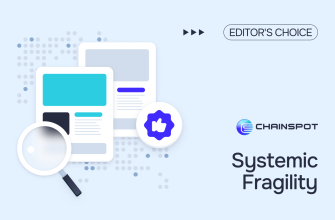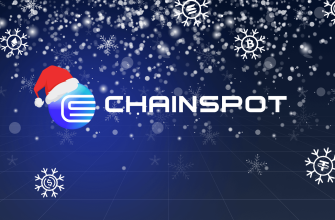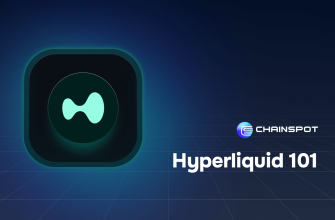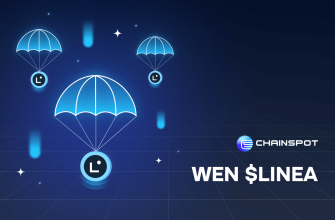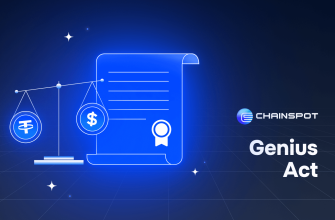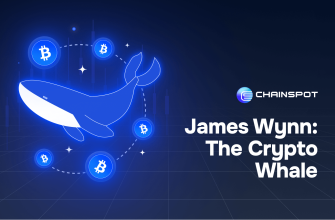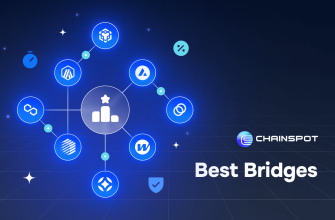Decentralized finance (DeFi) has grown exponentially, offering a wide range of financial services without the need for traditional intermediaries. However, this rapid expansion has also highlighted the limitations of blockchain networks, particularly in terms of scalability and transaction costs.
Rollups have emerged as a promising solution to these issues, offering a way to significantly enhance the performance and efficiency of DeFi platforms.
This article delves into the concept of rollups, their types, examples, and applications within the DeFi ecosystem.
What are Rollups?
Rollups are a layer 2 scaling solution designed to improve the throughput and reduce the transaction fees on blockchain networks, particularly Ethereum. They achieve this by aggregating multiple transactions into a single batch, which is then processed and verified off-chain. The resulting data is then compressed and submitted back to the main chain (layer 1), thereby reducing the load on the primary network.
Types of Rollups
There are two main types of rollups: Optimistic Rollups and Zero-Knowledge (ZK) Rollups. Each type has its unique approach to handling transactions and ensuring security.
Optimistic Rollups
Optimistic Rollups assume that all transactions in the batch are valid by default. They only require verification if a fraud proof is submitted, indicating that a transaction might be incorrect. This approach relies on game theory and economic incentives to deter malicious behavior. If someone detects a fraudulent transaction, they can challenge it by submitting a fraud proof. If the challenge is valid, the malicious actor is penalized, and the correct state is restored.
Example: One of the prominent implementations of Optimistic Rollups is Optimism. Optimism has been adopted by several DeFi projects to enhance their scalability and reduce transaction costs. Another notable example is Arbitrum, which also uses Optimistic Rollups to offer faster and cheaper transactions.
Zero-Knowledge (ZK) Rollups
ZK Rollups, on the other hand, use zero-knowledge proofs to verify the validity of transactions. These proofs, specifically zk-SNARKs (Zero-Knowledge Succinct Non-Interactive Arguments of Knowledge), allow the rollup to prove that the transactions are valid without revealing any specific details about them. This method provides a high level of security and reduces the need for trust in the system.
Example: zkSync is a leading implementation of ZK Rollups. It offers fast and cost-efficient transactions while maintaining a high level of security. Another example is StarkWare, which has developed StarkEx, a ZK Rollup solution that is used by several DeFi platforms to enhance their scalability.
Applications of Rollups in DeFi
Rollups have a wide range of applications in the DeFi ecosystem. Their ability to improve scalability and reduce costs makes them particularly valuable for various DeFi services.
Decentralized Exchanges (DEXs)
One of the most significant applications of rollups is in decentralized exchanges (DEXs). DEXs have experienced explosive growth, but they are often plagued by high gas fees and slow transaction times. By integrating rollups, DEXs can offer a more seamless trading experience with lower costs and faster execution.
Example: Uniswap, one of the largest DEXs, is exploring the use of rollups to enhance its platform. Similarly, Loopring, a DEX that uses ZK Rollups, has demonstrated significant improvements in trading efficiency and cost reduction.
Payment Solutions
Rollups are also instrumental in improving payment solutions within the DeFi space. By reducing transaction costs and increasing throughput, rollups enable faster and cheaper payments, making it easier for users to transact on the blockchain.
Example: zkSync has been used to facilitate micropayments and other payment solutions, offering near-instant transactions with minimal fees.
Lending and Borrowing Platforms
Lending and borrowing platforms in DeFi can benefit from rollups by offering more efficient and cost-effective services. High gas fees have been a significant barrier for users on these platforms, but rollups can mitigate this issue by reducing the cost of transactions.
Example: Aave and Compound, two of the most popular lending and borrowing platforms, are exploring the integration of rollup solutions to enhance their scalability and reduce costs for users.
Yield Farming and Staking
Yield farming and staking have become popular activities in DeFi, allowing users to earn rewards on their crypto holdings. Rollups can make these activities more efficient by reducing the transaction fees associated with staking and yield farming operations.
Example: Synthetix, a platform for trading synthetic assets, has integrated Optimistic Rollups to reduce the costs associated with staking and claiming rewards.
Challenges and Future Prospects
While rollups offer significant benefits, they are not without challenges. One of the main issues is the complexity of implementation and the need for robust security mechanisms to ensure the integrity of the system. Additionally, the user experience can be affected by the latency introduced by the rollup processes, especially in the case of Optimistic Rollups, which require a challenge period to verify transactions.
However, the future prospects for rollups in DeFi are promising. As the technology matures and more projects adopt rollup solutions, we can expect to see a more scalable and efficient DeFi ecosystem. Rollups have the potential to address the scalability issues that have hindered the growth of DeFi, making it more accessible and cost-effective for users worldwide.
Conclusion
Rollups represent a significant advancement in the quest for scalable and efficient blockchain networks. By aggregating transactions and processing them off-chain, rollups can dramatically improve the throughput and reduce the costs associated with DeFi operations. With their wide range of applications in decentralized exchanges, payment solutions, lending platforms, and more, rollups are poised to play a crucial role in the future of DeFi. As the technology continues to evolve, we can expect rollups to unlock new possibilities and drive further innovation in the decentralized finance space.






